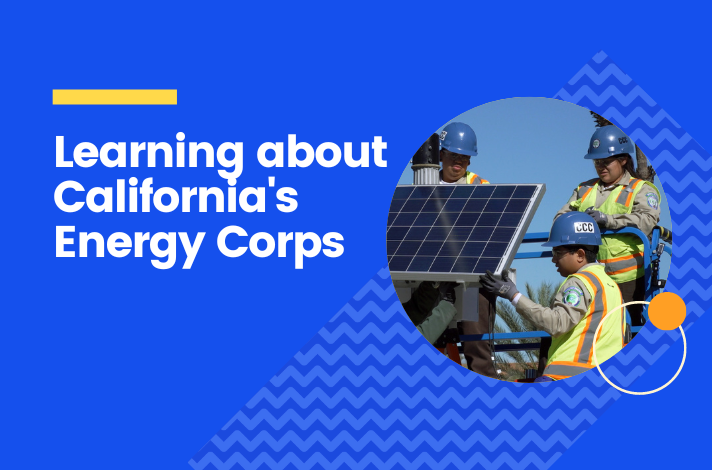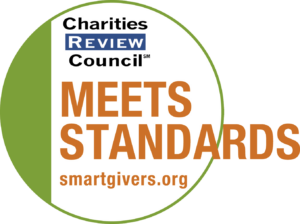We believe in the power of a national network of service – and one way we harness that network is by paying careful attention to programs in other states. We’ve been especially impressed with Energy Corps in California, a program through which corps members get intensive training to complete large-scale energy efficiency and renewable energy projects. Our team has been in contact with the leaders of this program, and got a chance to meet them in-person this past December!
Energy Corps, which is part of the California Conservation Corps (CCC), is an innovative model because it not only provides trained, effective teams for energy projects – it also trains and certifies corps members in energy-related work so they can become part of the workforce in a state that needs energy professionals. Energy Corps is one of California Conservation Corps’ “specialized corps,” which exist alongside the Conservation Corps field crews that respond to disasters, do trail maintenance, and support other conservation projects.
Here are three main things we noticed after studying California’s model:
- Strong Workforce Development
Energy Corps runs training monthly, and corps members aren’t required to stay in the program for any particular length of time, in part because funding is state-based. So it’s very flexible, and many people are being trained at any given moment. The program gives the corps members career development and guidance, actively empowering them to pursue a career in the energy field after their service. - Program Pride
Corps members identify with being part of the CCC, and specifically Energy Corps. The CCC is beloved and well-known across the state, which makes it easy for corps members to explain their service to future employers. This makes recruitment much easier for Energy Corps than other AmeriCorps programs nationally. - Large-scale Energy Projects
Energy Corps members complete large projects with businesses, organizations, schools, and public buildings. Projects are contract-based; members go to the designated site in the off-hours to perform energy audits and retrofits. This allows the program to save a massive amount of energy all at once for the state.
Here in Minnesota, we have a number of climate programs already completing critical projects across the state. Conservation Corps supports disaster response, including prescribed burning, as well as maintaining trails, waterways, and other spaces. GreenCorps, a long-time program, places AmeriCorps members at climate-focused service sites to help increase the state’s community resilience to climate change. The Home Energy Initiative, the Community Forestry Initiative, and the Climate Resilience Initiative are three programs which are all part of Climate Impact Corps. In addition to these programs, we’ve also created career pathways to help build a highly trained and diverse workforce.
Two of our programs have AmeriCorps members focusing on energy. Some AmeriCorps members in GreenCorps complete energy efficiency projects for public buildings. Home Energy Initiative members help residential homes save energy in partnership with the Weatherization Assistance Program.
Right now, we don’t have a crew-based program that tackles large-scale energy projects. The need is there – many large organizations, like public schools, don’t have the funds to make energy efficiency changes, and would benefit greatly from having the work done by federally and state-funded crews. The impact of having a program like this for energy efficiency in Minnesota – and the workforce – could be massive.






